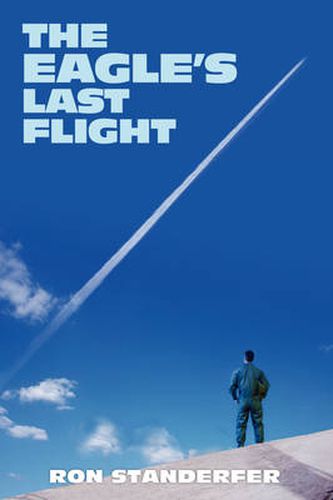Readings Newsletter
Become a Readings Member to make your shopping experience even easier.
Sign in or sign up for free!
You’re not far away from qualifying for FREE standard shipping within Australia
You’ve qualified for FREE standard shipping within Australia
The cart is loading…






This title is printed to order. This book may have been self-published. If so, we cannot guarantee the quality of the content. In the main most books will have gone through the editing process however some may not. We therefore suggest that you be aware of this before ordering this book. If in doubt check either the author or publisher’s details as we are unable to accept any returns unless they are faulty. Please contact us if you have any questions.
Skip O'Neill was just twenty two when he volunteered to participate in an atomic test. He did so willingly, certain his government would not put him in harm’s way. Afterwards, he served his country honorably and with courage, retiring as a Colonel and combat decorated fighter pilot. Years later, he learned the awful truth…he was dying of leukemia, most likely due to radiation exposure. While Skip is fictional, his story unfortunately is not. More than 400,000 troops were exposed to radiation during atomic tests or as POWs in Japan. Fewer than 20,000 are still alive. Most are over seventy five. Many have cancer. “I participated in an atomic test at Yucca Flat, Nevada in August, 1957.” Standerfer told an interviewer. “Standing on an observation platform eight miles from ground zero, I watched the detonation of an atomic bomb with a yield of 44 kiloton…more than twice the size of the one dropped in Nagasaki. Needless to say, it was an experience I never forgot and it weighed heavily on my mind when I wrote the book."The Eagle’s Last Flight is a journey through a nearly forgotten era when the Cold War veterans were place in harm’s way by our government and routinely lost their lives due to the carelessness and mismanagement of their leaders. Given the current controversies over adequate protection for our troops in Iraq, it is likely that readers who take that journey will learn a lot about how things used to be, but conclude that nothing much has changed.
$9.00 standard shipping within Australia
FREE standard shipping within Australia for orders over $100.00
Express & International shipping calculated at checkout
This title is printed to order. This book may have been self-published. If so, we cannot guarantee the quality of the content. In the main most books will have gone through the editing process however some may not. We therefore suggest that you be aware of this before ordering this book. If in doubt check either the author or publisher’s details as we are unable to accept any returns unless they are faulty. Please contact us if you have any questions.
Skip O'Neill was just twenty two when he volunteered to participate in an atomic test. He did so willingly, certain his government would not put him in harm’s way. Afterwards, he served his country honorably and with courage, retiring as a Colonel and combat decorated fighter pilot. Years later, he learned the awful truth…he was dying of leukemia, most likely due to radiation exposure. While Skip is fictional, his story unfortunately is not. More than 400,000 troops were exposed to radiation during atomic tests or as POWs in Japan. Fewer than 20,000 are still alive. Most are over seventy five. Many have cancer. “I participated in an atomic test at Yucca Flat, Nevada in August, 1957.” Standerfer told an interviewer. “Standing on an observation platform eight miles from ground zero, I watched the detonation of an atomic bomb with a yield of 44 kiloton…more than twice the size of the one dropped in Nagasaki. Needless to say, it was an experience I never forgot and it weighed heavily on my mind when I wrote the book."The Eagle’s Last Flight is a journey through a nearly forgotten era when the Cold War veterans were place in harm’s way by our government and routinely lost their lives due to the carelessness and mismanagement of their leaders. Given the current controversies over adequate protection for our troops in Iraq, it is likely that readers who take that journey will learn a lot about how things used to be, but conclude that nothing much has changed.